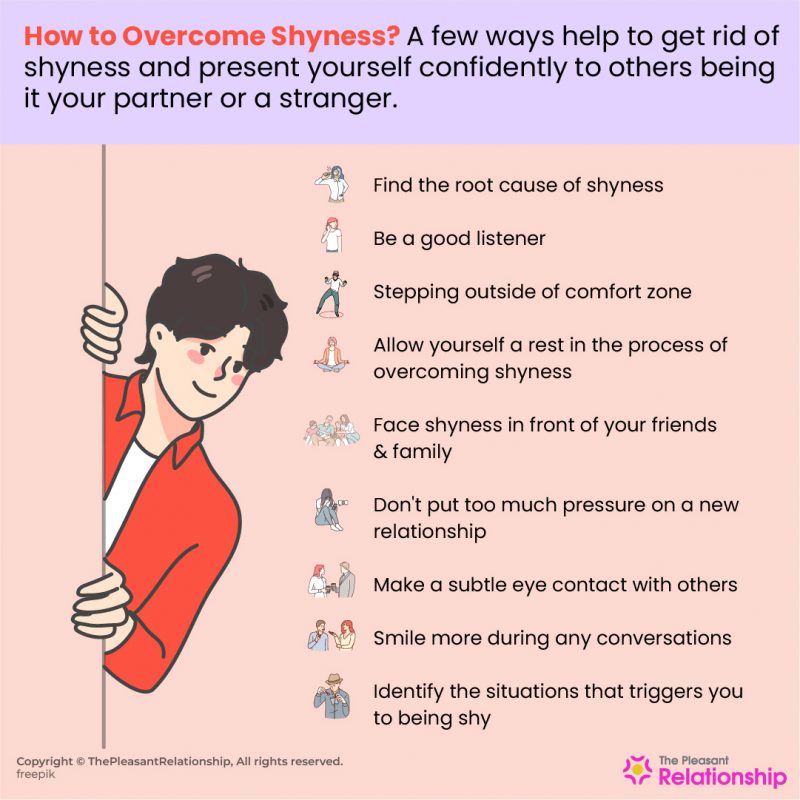Have you ever felt that little flutter in your stomach, that slight tightening in your chest, when you're about to meet new people or step into a room full of unfamiliar faces? It's a feeling many of us experience, a quiet hesitation that, in some respects, can make us hold back just a little. This common human experience, often called shyness, is more than just being quiet; it involves a whole range of feelings, from feeling a bit uneasy to a deep sense of not being comfortable in certain social settings. It’s a very real part of what it means to be human for many folks.
When someone talks about "shy smith," they are usually thinking about a person who, well, tends to be a bit reserved or easily startled in social connections. It’s not about being unfriendly, but more about a natural inclination to be cautious or to feel a touch of nervousness when interacting with others. This can show up in different ways, like perhaps a quiet voice, or maybe even a preference for smaller gatherings over big, bustling crowds. It's almost as if there's an inner quiet that guides their reactions, particularly when faced with new faces or a situation that feels unfamiliar.
This feeling, which we often label as shyness, isn't just a fleeting mood; it can be a deeply rooted part of someone's way of being. It's about a person who might feel a touch of apprehension or a lack of ease, especially when they find themselves around others. This can be especially true in situations that are new or when they are expected to speak up or draw attention to themselves. You know, it's that feeling of wishing you could just blend into the background, to just observe rather than be observed. It's a rather common thread in the human story, actually.
Table of Contents
- Understanding the Shy Smith
- What Does It Mean to Be a Shy Smith?
- How Does a Shy Smith Show Their Feelings?
- Shy Smith and New Situations
- Are Animals Shy Smiths Too?
- What Other Words Describe a Shy Smith?
- A Shy Smith Might Be Bashful
- A Shy Smith Might Be Coy
Understanding the Shy Smith
When we talk about a "shy smith," we are really exploring the characteristics of a person who experiences shyness. This isn't about someone being unfriendly or distant on purpose; it’s more about a natural tendency to feel a bit hesitant or reserved when around other people. Think of it this way: a shy person often feels a sense of worry or a bit of unease, especially in social gatherings. It's like they have a quiet voice inside that tells them to hold back just a little. This can be particularly noticeable when they are put into situations where they are expected to interact a lot or be the center of attention. It’s almost as if their comfort level is tied to feeling a sense of quietness around them, allowing them to observe things rather than having to be right in the middle of all the noise. This is, you know, a pretty common trait in many people.
This feeling of being a "shy smith" can come from a place of not feeling completely sure of oneself, or perhaps a little worried about what others might think. It’s a deep-seated feeling, a sort of inner inclination to avoid too much close contact or to just simply want to go unnoticed. For instance, someone who is a shy smith might feel a bit of a blush creep up their face, or their voice might waver a little when they try to speak to a crowd. They might also find it a bit difficult to look people directly in the eye, preferring to cast their gaze downwards or to the side. These little actions are, basically, ways their inner feelings come out for others to see. It’s a rather gentle way of expressing a wish for quiet and a desire to not stand out.
This characteristic, which we refer to as shyness, is about someone feeling a bit uncomfortable, perhaps a little on edge, or just plain timid when they are with other people. This often happens because they might not feel very confident, or they could be worried about what judgments others might make. It’s a feeling that tends to show itself in new situations or when they are surrounded by unfamiliar faces. You know, it’s that sense of wanting to retreat a little, to find a quiet corner, or to simply listen rather than speak. It’s a very real and, actually, quite common human experience that shapes how some people interact with the wider world around them.
What Does It Mean to Be a Shy Smith?
To be a "shy smith" means experiencing a particular set of feelings and behaviors that center around a sense of apprehension when with other people. It's about feeling a bit uneasy or a lack of comfort, especially when you are in a social setting. This feeling is not just about being quiet; it's about an inner state where one might feel a touch nervous or reserved. For instance, a person who is a shy smith might find themselves feeling a bit tense when they know they have to speak to a group, or they might prefer to listen rather than contribute to a lively discussion. It’s, in a way, a quiet strength, a tendency to take things in before putting anything out there. This can be, you know, a very natural part of someone's makeup.
This characteristic, typically associated with a "shy smith," means that a person is often nervous and just plain uncomfortable when they are around others. It's a feeling that can make someone want to pull back a little, to not be the center of attention. They might show this by being very quiet, or by avoiding eye contact. It’s almost like they have an inner switch that makes them want to be less visible in social gatherings. This feeling of being a "shy smith" is also sometimes called diffidence, which also points to a lack of confidence or a certain modesty when interacting with others. It’s, basically, about a person who feels a bit hesitant to step forward or to express themselves too boldly.
A "shy smith" is someone who is, you know, nervous or holds back when they are around other people, especially when they are in a social situation. This can show up in some rather clear ways. For example, someone who is extremely shy might find their cheeks getting a bit red, or they might stumble over their words when they try to talk to a group of people. These are outward signs that someone is feeling a bit nervous or perhaps a little embarrassed about meeting and speaking to others. It’s a quiet way of showing that they are feeling a touch of unease, a sort of gentle retreat from the spotlight. This is, in fact, a very common way that shyness shows itself.
Here is a table summarizing some common traits of a person who is a "shy smith":
| Characteristic | Description |
| Feeling Apprehensive | A sense of worry or unease when around other people. |
| Lack of Comfort | Not feeling at ease, especially in social situations. |
| Awkwardness | A feeling of not quite fitting in or knowing what to do or say. |
| Nervousness | A general state of being on edge or worried when interacting. |
| Reserved Behavior | A tendency to hold back, speak less, or observe rather than participate actively. |
| Blushing | Cheeks turning red as a physical sign of feeling nervous or embarrassed. |
| Stammering | Difficulty speaking smoothly, sometimes stumbling over words. |
| Wish to Escape Notice | A quiet desire to not draw attention to oneself. |
| Lack of Confidence | A feeling of not being sure of one's abilities or worth in social settings. |
| Fear of Judgment | A concern about what others might think or say about them. |
How Does a Shy Smith Show Their Feelings?
A "shy smith" often expresses their feelings through a series of subtle actions and reactions, rather than through bold statements. For example, you might notice someone who is shy tends to be a bit quieter in group settings, perhaps speaking only when directly asked a question. They might, you know, keep their gaze lowered, avoiding direct eye contact, which can be a way of trying to make themselves seem less noticeable. This isn't about being rude; it's a very common way for someone who feels a bit uneasy to try and manage their feelings in a social setting. It's a sort of gentle withdrawal, a quiet way of saying, "I'm here, but I'd prefer not to be the focus."
Sometimes, the signs of a "shy smith" are more physical. Someone who is feeling very nervous might find that their face gets a little warm, turning a light shade of red. This is, basically, blushing, and it’s a clear sign that they are feeling a touch of embarrassment or discomfort. Another thing that can happen is that their words might not come out as smoothly as they would like; they might stammer or stutter a little when trying to express themselves, especially if they are talking to a group of people. These physical reactions are, you know, involuntary ways that the body shows how much apprehension a person is feeling in that moment. It's a very human response to feeling overwhelmed or exposed.
The actions of a "shy smith" are, in essence, about showing that they are nervous or feel a bit embarrassed about meeting and speaking to other people. This can lead them to hold back from initiating conversations or to respond with very short answers. They might also seem a bit hesitant to join in activities, preferring to observe from the sidelines. It’s a clear indication that they are feeling a lack of comfort, a quiet unease that makes them wish to shrink from too much familiarity. This is, you know, a consistent pattern of behavior that stems from an inner feeling of not being completely at ease when surrounded by others. It's a rather gentle way of showing their true feelings.
Shy Smith and New Situations
For a "shy smith," new situations often bring out their feelings of apprehension most strongly. Imagine walking into a party where you don't know anyone, or starting a new job where all the faces are unfamiliar. For someone who is a shy smith, these moments can feel particularly challenging. There's that feeling of not knowing what to expect, and that can trigger a sense of unease or even a slight worry about how they will fit in. It's almost as if their comfort zone shrinks a little when faced with the unknown. This is, you know, a very common trigger for feelings of shyness, as the lack of familiarity means there are more variables to consider, more unknowns to contend with. It's a very natural reaction for many people.
This tendency for a "shy smith" to feel uncomfortable in new settings is, basically, because these situations often require them to interact with people they don't know well, or to adapt to an unfamiliar environment. This can lead to a feeling of awkwardness, a sense of not quite knowing how to act or what to say. It’s like their usual ways of being don't quite fit the new circumstances, and that can make them feel a bit exposed. They might find themselves wishing they could just disappear for a moment, to just observe from a safe distance until they feel a bit more settled. This desire to escape notice is, you know, a pretty common part of the shy experience in these kinds of settings. It’s a very real internal process.
So, when a "shy smith" encounters a new situation, it’s not just about meeting new people; it's about the entire experience of stepping into something unfamiliar. This can include anything from starting a new school class to attending a large public gathering. The feeling of not being completely at ease is often heightened in these moments, leading them to be more reserved than usual. They might, you know, take a bit longer to warm up, to feel comfortable enough to speak freely or to join in. This period of adjustment is, basically, their way of processing the newness and finding their footing. It's a very personal process that varies from one shy smith to another, but the underlying feeling of apprehension in newness is often there.
Are Animals Shy Smiths Too?
It's interesting to consider whether animals can be "shy smiths" in a way similar to humans. The concept of shyness, at its core, involves being easily frightened or hesitant to approach. And yes, some animals certainly show behaviors that we would describe as shy. Think about a wild creature that runs away the moment it senses a human presence; that's a form of being easily startled, a kind of natural reserve. For instance, the text mentions that the panda is a shy creature. This means that pandas, in their natural habitat, tend to be quite cautious and not willing to come near people. It’s, you know, a survival instinct that makes them keep their distance. This behavior is, basically, a form of shyness in the animal kingdom, where it helps them stay safe from potential threats.
When we talk about animals being "shy smiths," we are referring to their tendency to be easily frightened and to not want to come close to people. This isn't about social awkwardness in the human sense, but rather a natural instinct to avoid what they perceive as danger. A horse, for example, might suddenly move away or shy if something unexpected happens, showing that they are easily startled. This quick reaction is, in a way, a form of shyness, as it demonstrates a sensitivity to their surroundings and a desire to keep a safe distance. It’s a very practical kind of shyness, one that helps them stay alive in the wild. This is, in fact, a common trait in many wild species.
So, while the experience of shyness for an animal isn't the same as for a human "shy smith" who might worry about social judgment, the core idea of being easily startled or having a strong desire to avoid contact with others is very similar. Animals that are described as shy tend to keep to themselves, preferring quiet and solitude over interaction with unfamiliar beings. The panda, for example, is known for its quiet and somewhat hidden existence, which points to its shy nature. It’s a creature that, you know, prefers to shrink from close association with humans, choosing to remain in its own space. This is, basically, a very clear example of shyness in the animal world, showing how the concept applies beyond just people.
What Other Words Describe a Shy Smith?
When we try to describe a "shy smith," there are several other words that can help us paint a fuller picture of their quiet nature. These words capture different shades of what it means to be reserved or hesitant. Some common words that are quite similar to shy include bashful, coy, diffident, and modest. While all these terms generally mean that someone is not inclined to be forward or bold, each one adds a slightly different nuance to the feeling of shyness. It's like having a set of colors that are all in the same family, but each one has its own particular tone. These words, you know, help us understand the subtle differences in how shyness can show up in a person's demeanor. It's a very helpful way to describe the range of feelings a shy person might have



